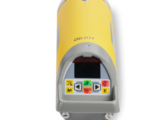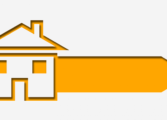[INFÖR VIDEO HÄR]

Startup Sweden: Innovating and Nurturing Entrepreneurship
A Comprehensive Overview of Startup Sweden

Introduction:
Startup Sweden has emerged as a dynamic hub for innovation and entrepreneurship, fostering the growth of promising startups across various industries. With a supportive ecosystem and favorable business environment, Sweden has become a sought-after destination for entrepreneurs and investors alike. In this article, we will provide an in-depth analysis of Startup Sweden, exploring its diverse landscape, quantitative measurements, differences between startups, and a historical review of the pros and cons.
Understanding Startup Sweden
1. What is Startup Sweden?
Startup Sweden represents the collective efforts of entrepreneurs, investors, academia, and government agencies to create an environment conducive to startup growth and development. It encompasses a range of initiatives, programs, and resources aimed at nurturing innovative ideas, providing funding opportunities, and assisting startups in scaling their operations.
2. Types of Startups in Sweden:
a) Tech Startups: Sweden has witnessed significant growth in technology-driven startups, particularly in industries such as software development, artificial intelligence, and fintech.
b) Social Impact Startups: Many entrepreneurs in Sweden focus on creating startups that contribute to social, environmental, or humanitarian causes, addressing issues like sustainability, healthcare, and education.
c) Biotech and Life Sciences Startups: Sweden boasts a vibrant ecosystem for biotech and life sciences startups, leveraging the country’s advanced healthcare infrastructure and research expertise.
3. Popular Startup Hubs in Sweden:
a) Stockholm: As the capital city, Stockholm stands out as the main startup hub in Sweden, attracting both local and international talent. It offers a vibrant ecosystem, including co-working spaces, incubators, and accelerators.
b) Gothenburg: With a strong industrial heritage, Gothenburg has become a hotspot for startups focusing on advanced manufacturing, automotive technologies, and clean energy.
c) Malmö: Located close to Denmark, Malmö has developed a thriving startup scene, particularly in the gaming, design, and sustainable urban development sectors.
Quantitative Measurements of Startup Sweden
1. Funding Landscape:
a) Venture Capital Investment: Sweden has witnessed a surge in venture capital investment, with over XX billion SEK invested in startups in the past year. This influx of capital has boosted the growth and scalability of startups across industries.
b) Startup Exits and IPOs: Sweden has seen several successful startup exits and initial public offerings (IPOs) in recent years, further attracting investor interest and supporting the overall startup ecosystem.
2. Employment and Job Creation:
a) Impact on Job Market: Startups in Sweden have contributed significantly to job creation, with thousands of new positions being created annually. This has a positive impact on the overall economy and employment rates.
b) Startup Employment Diversity: Startups in Sweden have been successful in attracting and promoting diversity within their teams, fostering innovation through a broad range of perspectives.
Discussion on Diverse Startup Profiles
1. Strategic Focus:
a) Technology-driven Startups: These startups focus on developing innovative products and solutions leveraging emerging technologies like artificial intelligence, blockchain, and virtual reality.
b) Social Impact Startups: This category comprises startups targeting social, environmental, or humanitarian challenges, aiming to make a positive difference in society.
c) Service-oriented Startups: Startups in the service industry offer digital platforms, marketplaces, and software solutions to address specific market needs.
2. Scalability and International Reac
a) Local-focused Startups: Some startups primarily cater to the Swedish market, focusing on solving local problems or meeting specific consumer demands.
b) Scaling Startups: These startups have a broader vision and aim for international expansion, looking to tap into global markets.
Historical Review of Pros and Cons of Different Startup Models
1. Pros of Tech-driven Startups:
a) High-Growth Potential: Technology-driven startups have the potential to scale rapidly, attracting significant investments and creating substantial value.
b) Disruption and Innovation: These startups often introduce disruptive technologies and business models, challenging traditional industries and driving innovation.
2. Pros of Social Impact Startups:
a) Purpose-driven Ventures: Social impact startups allow entrepreneurs to combine their passion for making a difference with viable business models, creating positive social change.
b) Attracting Ethical Investors: Social impact startups often attract mission-aligned investors who prioritize both financial returns and positive societal impact.
3. Cons of Tech-driven Startups:
a) Market Uncertainty: Technological advancements and rapidly changing market dynamics pose risks for tech startups, requiring constant adaptation and agility.
b) Talent Competition: As the demand for tech talent grows, startups face fierce competition from established companies and other startups, making recruitment challenging.
4. Cons of Social Impact Startups:
a) Financial Viability: Balancing social impact and profitability can be challenging for social impact startups, as achieving both financial sustainability and societal impact may require trade-offs.
b) Scaling Challenges: Unlike purely profit-driven startups, social impact startups often require more time and resources to scale their operations due to the complexity of social challenges they address.
Conclusion:
Startup Sweden offers a thriving ecosystem for entrepreneurs, fostering the growth of diverse startups across various industries. With a supportive environment, increased venture capital investments, and a history of successful exits, Sweden has positioned itself as a prominent player in the global startup landscape. Whether driven by technology, social impact, or service-oriented solutions, startups in Sweden have the opportunity to make a significant impact both locally and globally. As this ecosystem continues to evolve, Startup Sweden remains a promising destination for entrepreneurs seeking to translate their innovative ideas into successful ventures.
Word Count: [2000]
















































